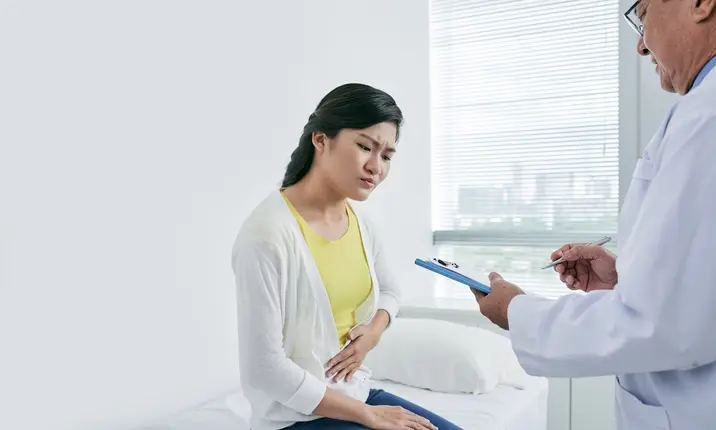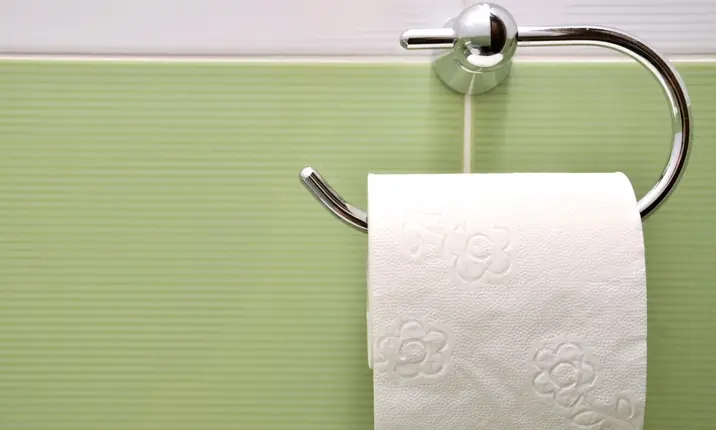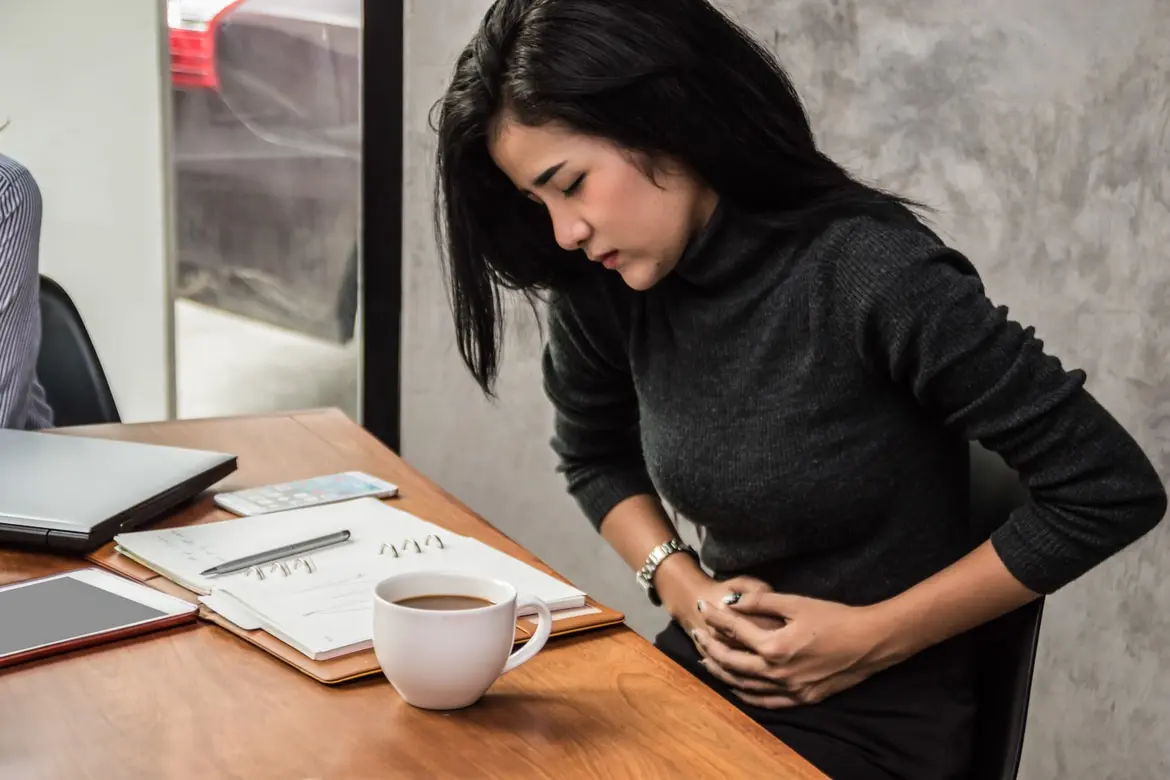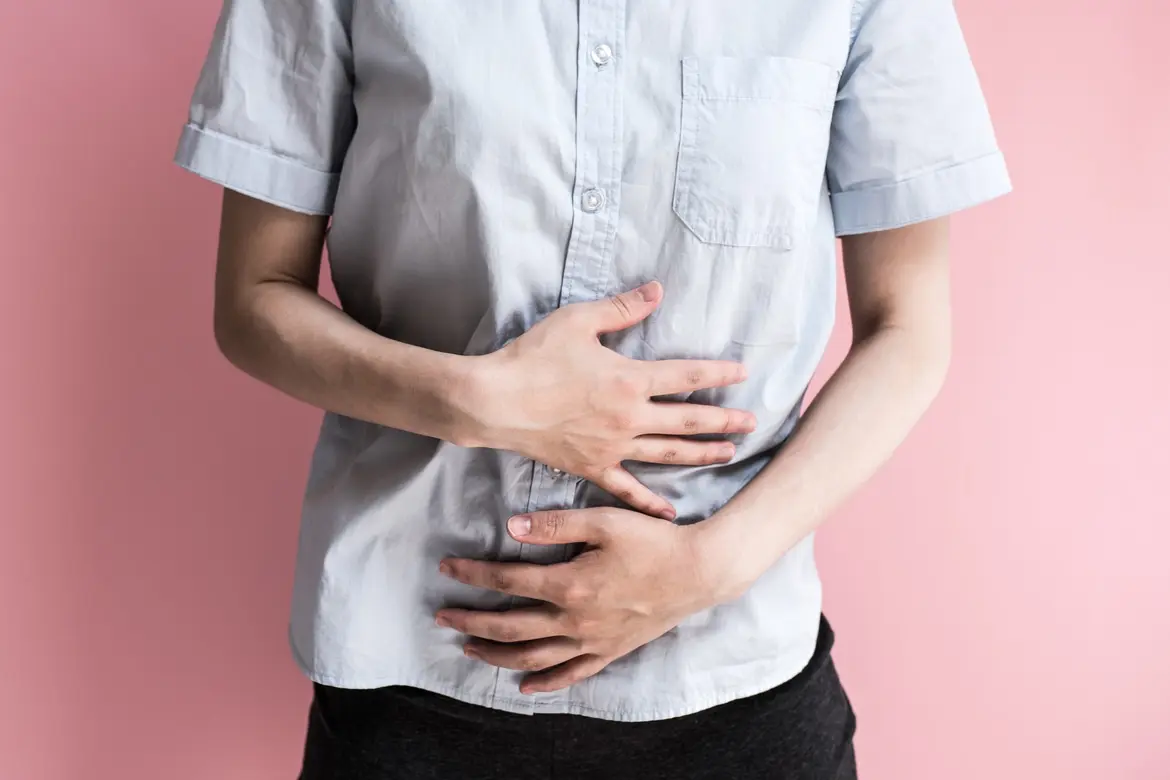
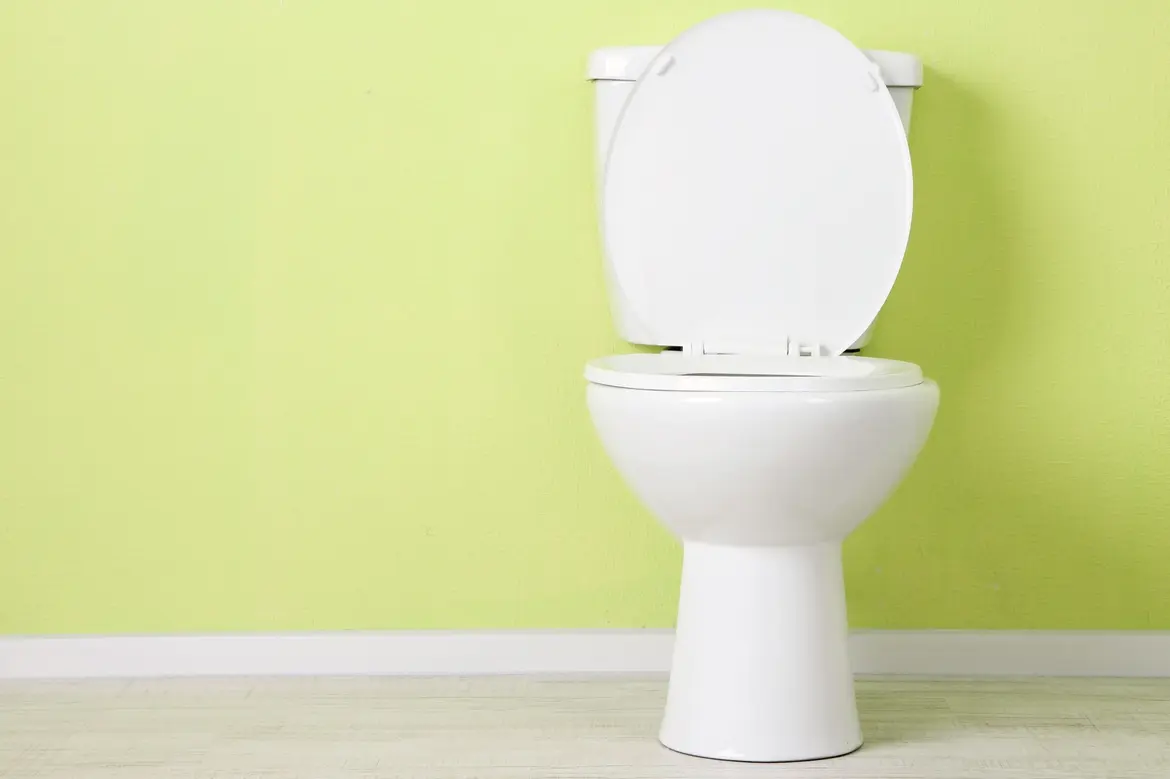
Source: Shutterstock
Constipated? Here are the Hard Facts
Last updated: Thursday, March 1, 2018 | 6 min reading time
Everyone experiences constipation at some point in their lives, but if you experience it chronically, your quality of life may be affected and complications may arise. So, how do you fix constipation?
Dr Mark Wong, a general surgeon with special interests in minimally invasive (laparoscopic) and robotic surgery for cancer and bowel disorders, gives us the facts on constipation and how to treat it.
What is constipation?
You know you have constipation when bowel movements become difficult or less frequent than what you are normally used to. Normal bowel movements can range anywhere between 3 movements per day to once every 3 days. In general, when bowel movement stops for more than 3 days, stools become harder and more difficult to pass. You may also experience abdominal bloating, cramps, or even vomiting in more serious cases.
Although definitions vary, you will generally be diagnosed with constipation if you have 2 or fewer bowel movements in a week, or if you have had 2 or more of the following symptoms for at least 3 months:
- Straining during a bowel movement more than 25% of the time
- Hard stools more than 25% of the time
- Incomplete evacuation more than 25% of the time
How common is constipation?
Constipation is one of the most common digestive complaints worldwide. In the USA alone, constipation affects 2% of the adult population, accounting for up to 2.5 million doctor visits annually and medication worth millions of dollars. A local study published in the Singapore Medical Journal in 2000 sets the incident rate in Singapore way above at about 7.3% in those aged 16 years and above.
What causes constipation?
There are numerous causes of constipation, and some patients may have more than one contributing cause. Laxatives may not always be the solution and in some cases are not required at all! The causes of constipation may include:
- Dietary disturbances (inadequate water intake, too little or too much dietary fibre, disruption of regular diet or routine)
- Immobility or inadequate activity/exercise
- Excessive/unaccustomed stress
- Medical conditions such as hormonal (hypothyroidism), neurological (stroke, Parkinson's disease), depression, eating disorders
- Medications (antacids containing calcium or aluminium, strong pain medicines like narcotics, anti-depressants, iron pills)
- Pregnancy
- Colorectal cancer
Fortunately, the vast majority of patients can be managed conservatively, and the doctor's role is to identify more serious causes that might require surgical treatment, such has colorectal cancer.
Functional constipation
Although not usually life-threatening, constipation can nonetheless be uncomfortable and frustrating. But when the cause isn't apparent and the causes above have been ruled out, you may be suffering from functional constipation, a silent culprit!
A significant proportion (up to 30%) of patients with constipation actually fall into this category, classically not having any obvious underlying illness to explain their symptoms. Unfortunately, many of them are misdiagnosed and become chronically dependent on laxatives.
In fact, they could be suffering from 1 of 2 types of functional constipation:
- Colonic inertia This is a condition characterised by a lack of urge to open bowels, resulting in very infrequent bowel habits (sometimes only 1 to 2 times per week). This is due to poor colonic contractions resulting in the retention of stools
- Obstructed defecation This is a condition where there is usually an urge but a person has to strain excessively during bowel movements. This may be due to a lack of coordinated anal muscle movements (contractions and relaxations) or structural problems like rectal prolapse, or a combination of both
These problems are often under-diagnosed, difficult to manage, or mismanaged due to a lack of understanding of these conditions. As a result, such patients seldom get better or have to use laxatives all their lives, severely affecting their quality of life.
When to see your doctor
Most people do not need extensive testing for the occasional episode of constipation. However, any of the following symptoms could point to a more serious cause, like colorectal cancer, so you should see your doctor for a diagnosis:
- Your constipation is a new and persistent problem and has lasted more than 2 weeks
- You have blood and/or mucus in your stools
- You are losing weight even though you are not dieting
- Your bowel movements are associated with severe pain
- You are more than 50 years of age with a family history of colorectal cancer
The doctor will conduct tests to rule out life-threatening causes like cancer, then help the patient to manage their constipation and avoid complications caused by long-term constipation.
How is constipation investigated?
When the cause of your constipation cannot be explained by dietary changes or other less serious causes, your doctor will want to do some tests to establish the cause.
These tests include:
- Blood tests if a hormonal imbalance is suspected
- Imaging/scans (CT colonography or barium) to exclude growths
Further specialised tests commonly performed by colorectal specialists include:
- Scopes (colonoscopy) to check for colorectal cancer
- Transit marker study A capsule containing 'markers' is swallowed and an x-ray is taken 5 days later. The number and distribution of these markers along the colon and rectum give a clue to the kind of constipation present
- Anorectal manometry This involves testing the pressures and reflexes of the anus and rectum to detect any incoordination that could be contributing to constipation
- Defecography An x-ray/magnetic resonance imaging (MRI) evaluates the actual movements of the colon and rectum during bowel movements to look for any prolapse or incoordination
What are the treatment options available?
Treatment has to be individualised and depends on the cause and severity of constipation. Whenever possible, treatment is directed at the underlying disease (eg. thyroid hormones for hypothyroidism, surgery for colorectal cancer). When treating constipation, the goal is to achieve at least 1 bowel movement of formed stools every 1 – 3 days without needing to strain.
Treatment begins with dietary advice to moderate fibre intake (avoid excessive fibre as this can cause constipation as well!) and ensure adequate fluid intake. Exercise is also important. Laxatives are also useful and should be tailored for each patient. You may be prescribed different kinds of laxatives to achieve different outcomes.
- Osmotic laxatives These work by preventing the body from removing water from the stools so they remain soft. They draw water out from the body and into the colon, so the water softens the stools
- Bulk-forming agent laxatives These are granules or powders that are taken orally. They help the stools to retain water, bulk up and stimulate intestinal muscle action
- Stimulant laxatives These stimulate the colon to promote bowel movements. But they are usually used only as a last resort. Continuous use may cause the colon to weaken to the point where the colon may not work properly without laxatives
For functional causes mentioned above, more than one type of treatment may be required to achieve the best outcomes, as defecation (passing stools) relies on a complex chain of coordinated events.
Fortunately, the majority of patients will benefit from conservative measures such as dietary modification and tailored medications. In some cases, specific pelvic floor rehabilitation exercises (anorectal biofeedback) are required to correct pelvic floor muscle incoordination. However, when the above measures fail, specialised surgery may be the only means of correcting anatomical abnormalities (eg. prolapse – when an organ slips or drops from its position) to relieve a patient's symptoms and improve their quality of life.
Constipation and haemorrhoids (piles)
Piles themselves are normal structures in the anus and are needed for continence (the ability to control faecal discharge and prevent leakage).
The term haemorrhoid or piles has been mis-used. When they are swollen, painful or bleeding, they should be termed haemorrhoidal disease (swollen piles) due to their abnormal enlarged state. If you have prolonged constipation, piles can enlarge and swell due to the excessive straining or hard stools causing damage, hence resulting in pain, swelling, bleeding or a combination of these symptoms.
How do I treat swollen piles?
The aforementioned symptoms of enlarged piles often clear up by themselves if the constipation stops early or medication is taken promptly. Keep your stools formed (ie. of good consistency, not hard or loose) and regular, so that you don't strain when going to the toilet. Moderate the amount of fibre in your diet and drink plenty of water to ensure your stools are formed.
However, if constipation continues to irritate your piles, you may need medication, failing which you may need surgery to remove the swollen portions of your haemorrhoids.
Piles can be surgically removed through a procedure called haemorrhoidectomy. This is an operation to remove haemorrhoids if minor treatments like rubber-band ligations do not work. Performed under general anaesthesia, the swollen parts are removed using a variety of methods depending on the symptoms and severity. This can be done as day surgery where patients can discharge on the same day.
 Brain & Spine Care
Brain & Spine Care

